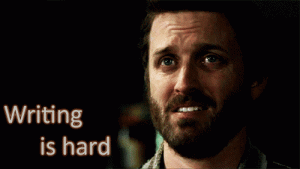Reading assignments from the Adler-Kassner and Wardle text lead me to explore (1) Metaconcept: Writing Is an Activity and a Subject of Study, (2) Concept 1.6: Writing Is Not Natural, and (3) Concept 1.7: Assessing Writing Shapes Contexts and Instruction. Threshold concepts place me on a new avenue of discovery as I explore writing as a subject of study.
- The Metaconcept helps me view study of writing research and rhetoric as crucial to the writer’s success. I was already aware that writing is not “an ideology-free” skill, but I was totally unfamiliar with the complexities of approaching, learning, and teaching writing differently. I only focused on writing as a “basic” skill (Adler-Kassner and Wardle 15-16). The link, https://prezi.com/qam7_whlnvlm/writing-is-not-just-a-basic-skill/, displays a presentation that echoes the concept. I’m convinced further study of threshold concepts will aid me in becoming a better writer. The concept that “Writing Is Not Natural” is worthy of reflection.
- The text’s comparison of how speech and writing have been learned, with the reminder that not all languages have writing, and that writing has not been around along as speech, serves to alleviate frustration writers have in trying to get words from thought to written form (Adler-Kassner and Wardle 27-29). Steve Graham shared his initial feelings about writing, overcoming the of negative mindset, and contribution to his doctoral students’ growth at the following link. https://hawkhopesblog.wordpress.com/2015/11/01/writing-is-not-natural/. I found his article encouraging as I face my own writing challenges. I may speak a sentence with little or no effort. Writing the same sentence involves revising content (usually more than once) to adequately convey my thought so that nothing is lost in translation.

- The concept of “Assessing Writing Shapes Contexts and Instruction” offers insight into how writing assessment is not neutral. Judgements in assessing writing may be influenced by individual and institutional factors such as political agendas, cultural assumptions, philosophies of literacy and learning, among others. Gee’s “The New Literacy Studies” references a concept from Shirley Brice Heath’s study on a need to consider literacy experiences in homes of non-Mainstream social groups when implementing school-based literacy programs (Gee 42). Those findings corroborate how institutional parameter/cultural assumptions may not coincide with elements of students’ writings. It is of monumental importance to note from the assigned text that boundaries constructed by writing assessments affect an institution’s curricula; a teacher’s job status, intellectual/creative agency, and merit; and a student’s legitimacy and chances of success (Adler-Kassner and Wardle 29-31). The realization that consequences affect the writer whose work is being judged and the one performing the assessment serves as an admonition to future teachers: be informed of an institution’s goals/setting to determine agency teachers and students have in determining the character of their work prior to accepting a position. I pulled up an example from the City University of New York’s Assessment Test in Writing at the following link: http://www2.cuny.edu/wp-content/uploads/sites/4/page-assets/academics/testing/cuny-assessment-tests/test-preparation-resources/StudentHandbookCATWWebnew.pdf. I’m reviewing it through the lens of what I’m learning from threshold concepts.
Adler-Kassner and Elizabeth Wardle. Naming What We Know: Threshold Concepts for Writing Studies. Boulder: University of Colorado Press., 2016. Print.
Gee, James Paul. “The New Literacy Studies.” The Routledge Handbook of Literacy Studies, edited by Jennifer Rowsell and Kate Pahl, Routledge, 2015. pp. 35-48.

Arlene,
I really like how you incorporated your ideas into arranged bulletpoints. It really helped structure your response.
I also agree with your point that writing the same sentence requires resisting content to adequately convey a thought that might get lost in translation. I find myself struggling with this when trying to connect ideas from different sources, where I want to explain the contrast in ideas through the authors voice. Instead I often have to stop myself and write my idea in my own words first, then connect this through other people’s words.
Good post!
-Kelley
Hey Arlene.
You made some great choices for embedded links. I also liked how you started out with a rundown of which concepts you were going to be addressing. You seemed to take to a technical kind of format with the bullet points. I personally prefer a more periodical-type paragraph structure, but this definitely works too. I’d like to hear more of what you have to say on “Writing is Not Natural.” This is an interesting and rarely considered concept that I think makes for a good kind of discussion prompt. I really enjoyed reading your post. Great work!
Brian
I find myself interested in everyone’s perspective that writing is hard, and I feel the same as you when you talked about alleviating “frustration writers have in trying to get words from thought to written form” because you face the same challenges. Since writing is not natural to us, I think it is a process of translating language into something to be interpreted by others, and as you said that you revise a lot, I think revision is the attempt to shape the writing both as accurately as we intend the words to be, but also to shape how the audience will interpret it.
I also love your picture, by the way.
Hey Arlene,
I think it’s interesting that you consider writing a basic skill. I would agree, but alter the idea. Writing isn’t a basic skill, it’s–to steal from Alder-Kassner and Wardle–a threshold skill. Writing is necessary in modernity for communication, record-keeping, and analysis. Anyone can write, and should learn to do so well. However, there is a great deal of, as you said, complexities and ideologies that professional writers (or teachers) must consider. This is why “Naming What we Know” is useful. It answers, “What are the complexities behind writing that we must address?”
The challenge you experience–conveying your thoughts so that they are not lost in translation–is sort of the fundamental idea behind writing. I would add that writing helps translate emotions or other abstract ideas. This is the highest, and most difficult, calling of the written word. But always, writing mimics speech. It’s just not possible to construct words as you are speaking them to achieve a powerful, singular effect. A script would be written before-hand, and then a good actor would have to work with that material. So cut out the middle man. Writing is thought. The reader sees the writer’s mind, follows the journeyed road. The writer is like the guide, explaining what it all means. The writer is also the sage, the King, the God, all in that mental space. Once the reader completes the journey and has listened carefully, respecting the writer’s power over their own domain, they must sit a while and reflect. What comes next is up to them.
Sorry if that wild ramble didn’t do anything for you, but I was attempting to express something about what writing is.
Keith, your comment is insightful and not a “wild ramble” at all. In fact, it has served to give me a visual that alleviates pressure. The simile: “writer is like the guide…” coupled with metaphors: “writer is also the sage, the king…” occupying “that mental space” as the reader “follows the journeyed road” help me immensely. As a writer, I lead the reader, but what the reader ultimately discerns after reflection is up to that reader. I don’t have words to convey how much your comment speaks to my challenge. Thank you!